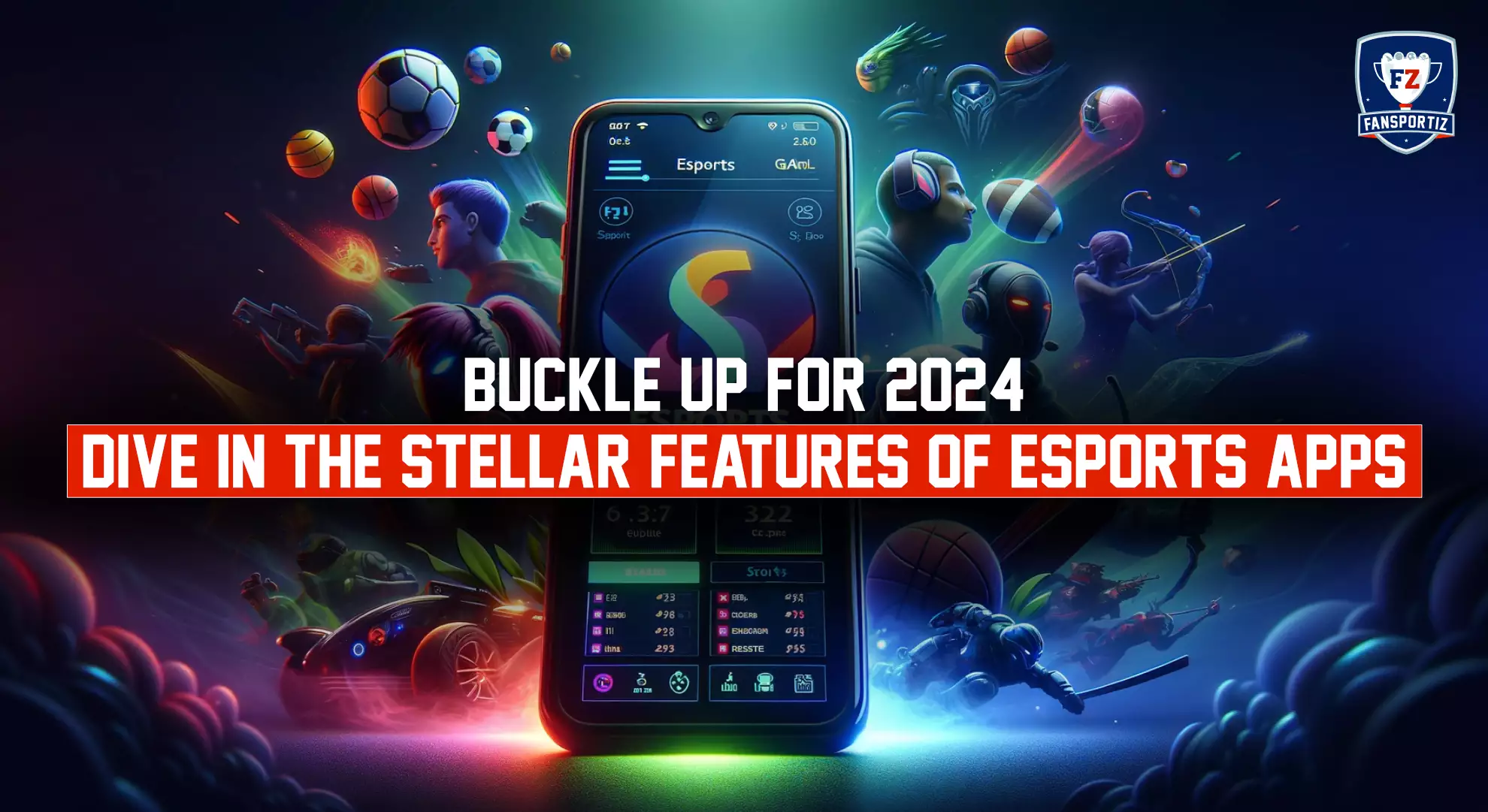Published on - Nov 22nd, 2023
In the digital colosseum of esports, where virtual battles rage and fans converge, every esports app development project has become the standard-bearer of innovation. These apps are more than mere gateways; they are the lifeblood of the esports ecosystem, providing a nexus where gaming fervor meets the thrill of competition.
The Evolution of Esports Apps: From Pixels to Platforms
The journey from rudimentary game trackers to the best esports apps has been a saga of transformation. Today, these platforms are not just about viewing; they’re about experiencing the game in all its glory, with apps like the fantasy football app transcending the digital divide to become a staple in the gamer’s lifestyle. Here are the key esports app features that act as the cornerstones of engagement
1. Real-Time Updates:
The immediacy of real-time updates is akin to watching the game unfold from the front row. Apps like Twitch and Mixer have set the standard, offering live streaming that captures every moment as it happens, keeping the audience on the edge of their seats.
2. Analytics
Detailed analytics are the strategist’s toolkit, turning every user into a data-savvy analyst. Platforms like Strafe and theScore Esports provide users with a wealth of statistics, allowing them to dissect player performances and game strategies with precision.
3. Community Features:
Community features are the heart of fandom, transforming solitary gaming into a shared passion. Discord and Reddit have become essential in this regard, offering spaces for fans to discuss, debate, and connect over their favorite games.
4. Personalization:
Personalization is the signature of the gamer, ensuring that each app experience is as unique as the user’s gaming style. Apps like GameBuddy tailor content and notifications to the user’s preferences, making every interaction feel personal.
5. Monetization:
Monetization strategies are the engine of growth, fueling the app’s development while enhancing user experience. Fortnite’s in-app purchases offer a model of how to integrate monetization seamlessly, providing users with value without disrupting gameplay.
6. Interactive Content:
Interactive content is the engagement multiplier, offering users a way to not just view but participate. Apps like HQ Trivia have revolutionized this space by turning passive viewers into active participants through live trivia games centered around esports events.
7. Esports Betting Integration:
The integration of esports betting brings the thrill of the wager to the gaming experience. Apps like Unikrn offer a legal platform for betting, adding an extra layer of excitement for fans who want to stake their claim on the outcomes of esports matches.
What are the top technical features that impact the development of esports apps?
Creating an esports app is akin to engineering a high-performance sports car; every component must work in harmony to deliver an exhilarating experience. Here’s a closer look at the technical intricacies that are important to build a fantasy football app and the best esports apps:
1. Scalable Infrastructure:
To handle the massive influx of users during major esports events, the app must be built on a scalable cloud infrastructure. This ensures that the app can manage peak loads without compromising performance. For example, AWS’s Elastic Compute Cloud (EC2) allows apps like PUBG Mobile to scale up during high-traffic events seamlessly.
2. Real-Time Data Processing:
The backbone of live updates and analytics is a robust real-time data processing system. This involves using technologies like WebSockets for maintaining a persistent connection between the server and the app.
3. Advanced Analytics:
Integrating machine learning algorithms to analyze user data helps in offering personalized content and predictions, enhancing the user experience.
4. Intuitive User Interface (UI) and User Experience (UX):
A clean, responsive design ensures that users can navigate the app effortlessly, which is crucial for keeping them engaged.
5. Robust Security Measures:
With features like in-app purchases and esports betting, security becomes paramount. Implementing advanced encryption and secure payment gateways is essential to protect user data.
6. Cross-Platform Compatibility:
Ensuring the app performs consistently across different devices and operating systems is crucial for reaching a wider audience.
7. Content Management Systems (CMS):
A dynamic CMS allows for quick updates and management of the app’s content, keeping the information fresh and relevant. The use of headless CMS platforms is becoming increasingly popular among esports apps for their flexibility and ease of content distribution.
8. API Integrations:
Integrating with various APIs for game statistics, social media, and other services can enrich the app’s features and functionality. For instance, the integration of Twitch’s API allows apps to stream live esports content directly within the app, creating a seamless viewing experience.
9. Push Notification Systems:
A sophisticated push notification system can drive user engagement by keeping them informed about upcoming matches, live events, and new content.
10. Testing and Quality Assurance:
Rigorous testing, includes load testing and user acceptance testing (UAT). It ensures that the app is reliable and user-friendly before its release.
Conclusion
The future of esports apps lies in interactivity and immersion. These features are not just enhancements during esports app development. But defining elements that make esports apps a central hub of engagement for fans around the globe. They ensure that the digital colosseum of esports remains a vibrant, dynamic, and inclusive space for all.
